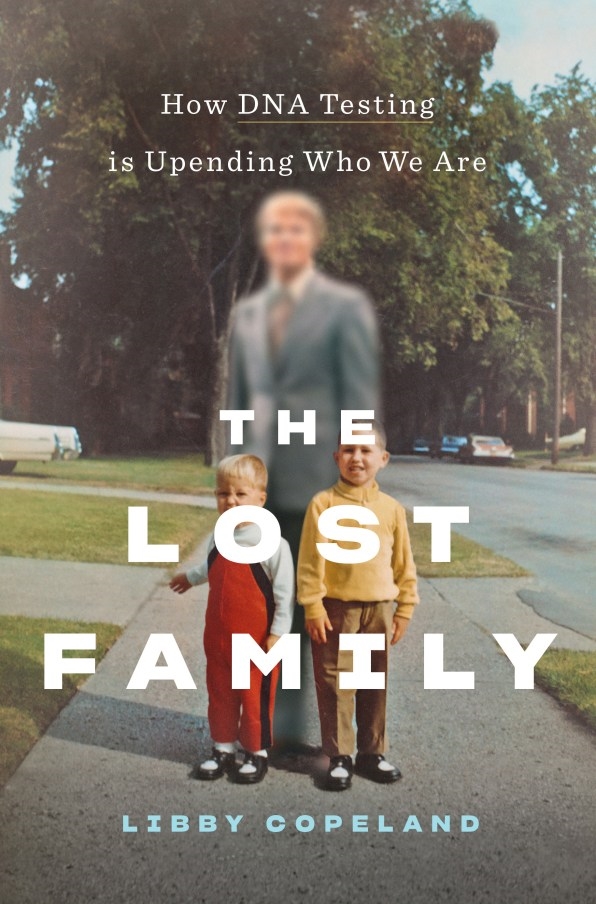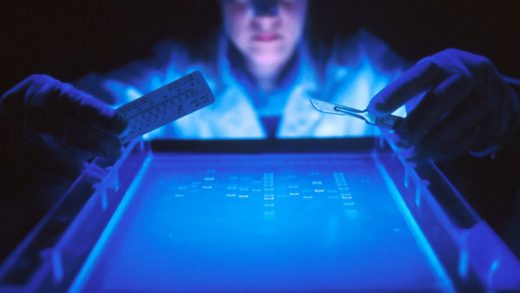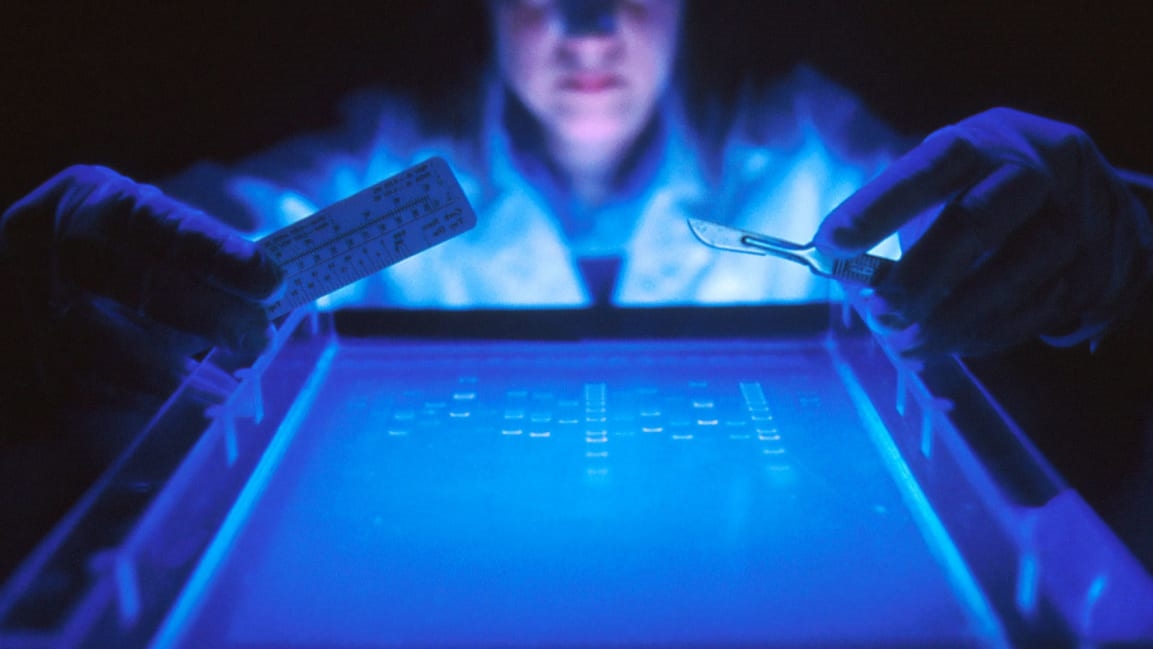How genetic info is changing the way that police operate—and how we all think about privacy
By Libby Copeland
In her new book “The Lost Family: How DNA Testing Is Upending Who We Are,” journalist Libby Copeland looks at how home DNA testing has implications for families, for law enforcement, and for how we understand our own privacy and interconnectedness. The mail-in spit kits Copeland writes about are sometimes known as “recreational,” to distinguish them from the genetic tests ordered by doctors, yet the technology’s repercussions can be far more than recreational. This excerpt, from a chapter exploring the use of quasi-public DNA databases like GEDmatch and FamilyTreeDNA to solve violent crimes and identify culprits including the alleged Golden State Killer, explores the tension between privacy and public safety.
The use of genetic information to solve crimes, however worthy, has to be balanced with legitimate concerns on the side of protecting privacy, computational biologist and MyHeritage chief science officer Yaniv Erlich told me. The problem is one of trust. “Genetic information is essential if you want to advance precision medicine,” he said. “We have families, some of them I know personally, that genetics was able to help, to identify the cause of serious conditions.” But what if people were to stop trusting researchers to keep their information safe? “If we cannot recruit tens of thousands, maybe hundreds of thousands of people for these studies, we cannot help these people,” Erlich said. “We cannot use the power of the genetic revolution to empower our understanding. And that’s a huge missed opportunity.”
This erosion of trust may already be happening. As far back as early 2019, 23andMe co-founder and CEO Anne Wojcicki said the market for her product had slowed, speculating that this might have to do with broader privacy concerns stemming from things like the Golden State Killer case and Facebook’s dicey data-collection practices. Some observers have suggested that the lack of privacy protections around genetic data may disproportionately affect minorities, and I heard a number of accounts of African Americans quitting GEDmatch after it became clear that police had used it to help identify Golden State Killer suspect Joseph James DeAngelo.
And, of course, concerns about how we protect our genetic information extend beyond the context of recreational testing. Some experts worry about the increasing use by police of Rapid DNA machines, which can process samples in ninety minutes, and which they fear poses the possibility of errors and privacy violations. There are serious concerns about DNA testing on migrants. And all of this is taking place within the broader context of what legal scholar Andelka Phillips calls “ever-increasing monitoring, where we are all subject to complex data mining and profiling.” The problem, Phillips says, is that it’s difficult to imagine how data from direct-to-consumer testing may in the future be linked with other data and used in ways we can’t anticipate.
It might, in theory, be used by some future totalitarian government to discriminate against its citizens. This may seem implausible, except that the day I spoke with Erlich—and asked him if he could imagine a future world in which our ancestral backgrounds could be used to hurt us, and he said he didn’t need to project into the future because “I can go to the history”—on that same day, the New York Times ran a story about how Chinese authorities were using DNA as part of a “campaign of surveillance and oppression” against the country’s ethnic minority Uighurs.
Journalist Kristen V. Brown has thought a lot about big data and unintended consequences. In 2015, she covered the hack of the website Ashley Madison, an online dating service geared at people who wanted to cheat on their partners. “Life is short. Have an affair,” the site’s slogan went. Brown wanted to know how the hack and subsequent exposure of the site’s users’ personal information had changed their lives, so she interviewed more than one hundred people impacted by it and learned about divorces, blackmail, and suicides. It’s easy to assume that if you don’t cheat on your spouse, you don’t need to worry about this sort of thing, and that if you do cheat, well, you deserve what you get. But Brown thought the incident had broader implications. She was fascinated by a concept from Georgetown Law professor Paul Ohm that we are all at the mercy of the massive troves of data that businesses collect and keep on us, and that somewhere amid all that information, every one of us has a devastating secret. Ohm called this eventual, interconnected treasure trove of information the “database of ruin,” and he urged in a 2012 Harvard Business Review article, Please don’t build this.
This idea stuck with Brown, and when she started covering consumer DNA testing, she saw how this new technology fit the paradigm. “I was like, ‘Oh my god, our genomes have now become databases of ruin.’ It’s just another piece of data that can be incriminating,” she says. “I think we’re at the beginning of living in a time where you can’t really keep secrets anymore. And how does that change how we go about the world and our daily lives?”
How does it? We’re such bad prognosticators. Historian Melvin Kranzberg once wrote that technology is neither good nor bad, nor is it neutral, by which he meant technologies play out in vastly different ways depending on the context, and that we often lack the ability to anticipate how they will change our lives.

Just over a year after Joseph James DeAngelo was arrested, the rush to what legal scholar Natalie Ram has called a de facto national DNA database abruptly slowed. After a seventy-one-year-old woman in Utah was attacked and choked into unconsciousness as she was practicing the organ in her church, GEDmatch co-founder Curtis Rogers made an exception to the site’s policy that law enforcement access the database only for murders and sexual assaults, and allowed police in to help solve a case he described as “as close to a homicide as you can get.” In the ensuing controversy over the site unilaterally making an exception to its terms of service, GEDmatch decided to expand the definition of violent crimes that law enforcement matching could be used for—and to automatically opt all its users’ information out of being available to law enforcement. If people wanted their genetic information used in this way, Rogers decided, they needed to proactively choose it. Overnight, the database of people that investigative genetic genealogists like CeCe Moore (working for a company called Parabon) and Barbara Rae-Venter (who’d helped solve the Golden State Killer case) could access to help police narrow in on suspects went from about a million to zero. Moore called it “a setback for justice.”
When I spoke with Rae-Venter a few weeks after GEDmatch’s decision, she told me she was hopeful that a growing opt-in movement would eventually make the database a destination for law enforcement matching again. By then tens of thousands of people had logged into GED-match to request that their genetic information be used to solve crimes. In the meantime, she said, she was still able to use the FamilyTreeDNA database for investigations. Some months later, FamilyTreeDNA announced a new investigative genetic genealogy unit to rival the one Moore was heading at Parabon, this one headed by Rae-Venter. And then the New York Times reported that a Florida detective had obtained a warrant giving him permission to search all of GEDmatch’s database, including data from the majority of users who hadn’t consented to being involved in criminal investigations. The judge’s decision to grant this order was a game-changer, experts told the paper; it would likely embolden other agencies to seek similar warrants for huge companies like Ancestry and 23andMe, potentially “turning all genetic databases into law enforcement databases.”
DNA revelations mean that an alleged sadistic serial murderer named Joseph James DeAngelo is behind bars, but they also mean that you could be implicated in the arrest of a relative. It means that an adoptee can find her parents, and it also means that a family can find out that decades before, a man cheated on his wife and produced a child—which could be good for that child and bad for that wife and a mixed blessing for that man. Perhaps consumer genomics means we are all on guard waiting for the other shoe to drop, or perhaps it means that we are all forced to be more honest with each other. One of the central conundrums of spitting into a tube is the way one person’s rights so often collide with another’s after the tube is sealed and sent in.
Excerpt from the new book The Lost Family: How DNA Testing Is Upending Who We Are by Libby Copeland by Abrams Press
© 2020 Libby Copeland
(9)



